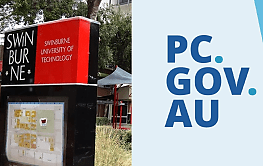
As thousands of brave individuals reveal their painful stories of workplace bullying and harassment, the professional world must jolt into action.
This year, I openly shared my experiences with workplace bullying and harassment on LinkedIn.
My candid post caused a stir, amassing a surprising 1.2 million views, 9,600 likes, 1,516 comments, and 829 reposts. The message could not have been clearer, “Workplace bullying and harassment demand our immediate attention”.
But what hit me like a tonne of bricks were the gut-wrenching stories that inundated my inbox (and still do to this day). Over 2,000 people privately reached out to me, sharing their own tales of workplace torment across various industries. Their stories dripped with pain, betrayal, and suffering, leaving them disillusioned, shattered, and broken. Unbelievably, two even confessed to contemplating self-harm. Their courage in confiding in a complete stranger was nothing less than heroic, exposing the epidemic proportions of this issue across different sectors.
Yet, these stories are just the tip of the iceberg. Countless others silently read my post and nodded in agreement, bound by the fear of their bosses and workplaces. Some, albeit unintentionally, owned up to feeding the monster of workplace bullying and harassment to advance their careers. Others were gagged by non-disclosure agreements, rendering them unable to share their traumatic experiences.
The sheer scale of these stories is an outrage. In the professional world, where ethics should reign supreme, bullying and harassment have thrived for too long under the flimsy pretexts of “toughen up” and “it was far worse back in my day”. Historical context can never excuse ongoing suffering. It’s time we fiercely pursue progress and uphold basic human decency.
Our mission as professionals is reflected in the word “professionalism”. So, why in the world do we tolerate a hostile environment within our own ranks? How did our workplaces degenerate into political circuses, marred by favouritism and deceit, resembling the Hunger Games? This baffling paradox undermines the very essence of professionalism.
These stories should stir a tempest of emotions within us as human beings: pain, anguish, and, above all, rage. They should galvanise us into immediate action instead of clinging to feeble excuses like “it’s not happening to me. Why should I care?”. Let me spell it out for you – because if you’re a professional and a human, you have a moral duty to care for your fellow humans.
My personal journey, where I shared my own story, has exposed a longstanding crisis that extends far beyond my own experiences. It is a collective battle, a reckoning that we have all been aware of for far too long. It’s time for change. The professional world should epitomise professionalism, not serve as a breeding ground for mental anguish and suffering.
To the victims, know this. You are not alone. We recognise the problem in workplaces, and there are those who are tirelessly working to rectify it, myself included. If your workplace is a toxic cesspool, remember, you do not have to stomach it. Speak up or move on. You do not have to tolerate a poisonous hellhole for the sake of money, prestige, or reputation. If your field is your passion, there is another job out there for you. Do not live in fear, regardless of your position or experience.
To university educators, listen up. Educate your students about workplace bullying and harassment. Equip them with the tools to spot and address it. Your degrees should prepare your students for success, so give them the real-world knowledge they need to secure their futures. Do not just stick to theory. Bring in those who have walked through the fire of workplace bullying and harassment to share raw, valuable insights.
To employers, it is long overdue for you to step up and create genuinely safe workplaces. The law mandates it, including a new duty that compels you and persons controlling a business or undertaking to take serious steps to eliminate sexual harassment, sex-based discrimination, harassment, hostile workplace environments, and victimisation. For those already doing the right thing, kudos to you. But, for those sloths who are in denial, it’s time to act. Ensure that bullies face the music. Realise that providing mental health support to your staff is not a luxury – it’s a necessity. Grasp that your staff deserve a life outside of work.
Make diversity, mental health, bullying and harassment education mandatory for every staff member. And for the sake of all that is just and humane, provide an anonymous platform for your employees to blow the whistle on toxicity that thrives within your ranks. But, above all else, protect your staff at any cost. No one, and I emphasise, NO ONE, should have to endure a toxic workplace that forces them to empty their pockets on therapy.
As we edge closer to 2024 in a few months, let’s not forget that we all have the power to rewrite this narrative. Let’s expose bullying and harassment for the plagues they are and pave the way for a professional world where respect, empathy, and ethical conduct reign supreme. Change starts with us, and together, we can revolutionise the working world so every professional can thrive.
Stefanie Costi is a lawyer who focuses on workplace bullying.
RELATED TERMS
Harassment is defined as persistent behaviour or acts that intimidate, threaten, or uncomfortably affect other employees at work. Because of anti-discrimination laws and the Fair Work Act of 2009, harassment in Australia is prohibited on the basis of protected characteristics.









